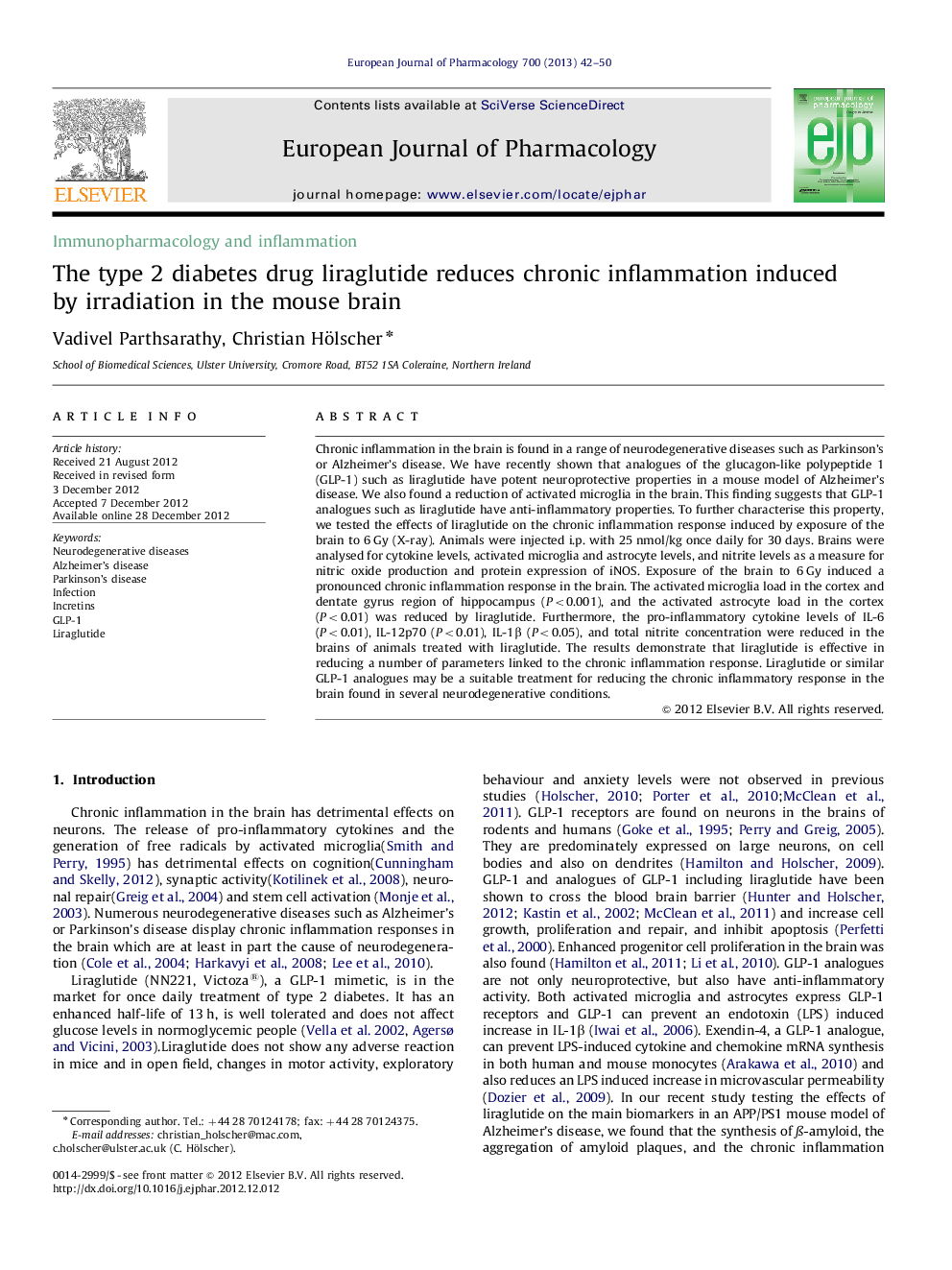| کد مقاله | کد نشریه | سال انتشار | مقاله انگلیسی | نسخه تمام متن |
|---|---|---|---|---|
| 5828884 | 1558981 | 2013 | 9 صفحه PDF | دانلود رایگان |
Chronic inflammation in the brain is found in a range of neurodegenerative diseases such as Parkinson's or Alzheimer's disease. We have recently shown that analogues of the glucagon-like polypeptide 1 (GLP-1) such as liraglutide have potent neuroprotective properties in a mouse model of Alzheimer's disease. We also found a reduction of activated microglia in the brain. This finding suggests that GLP-1 analogues such as liraglutide have anti-inflammatory properties. To further characterise this property, we tested the effects of liraglutide on the chronic inflammation response induced by exposure of the brain to 6 Gy (X-ray). Animals were injected i.p. with 25 nmol/kg once daily for 30 days. Brains were analysed for cytokine levels, activated microglia and astrocyte levels, and nitrite levels as a measure for nitric oxide production and protein expression of iNOS. Exposure of the brain to 6 Gy induced a pronounced chronic inflammation response in the brain. The activated microglia load in the cortex and dentate gyrus region of hippocampus (P<0.001), and the activated astrocyte load in the cortex (P<0.01) was reduced by liraglutide. Furthermore, the pro-inflammatory cytokine levels of IL-6 (P<0.01), IL-12p70 (P<0.01), IL-1β (P<0.05), and total nitrite concentration were reduced in the brains of animals treated with liraglutide. The results demonstrate that liraglutide is effective in reducing a number of parameters linked to the chronic inflammation response. Liraglutide or similar GLP-1 analogues may be a suitable treatment for reducing the chronic inflammatory response in the brain found in several neurodegenerative conditions.
Journal: European Journal of Pharmacology - Volume 700, Issues 1â3, 30 January 2013, Pages 42-50
